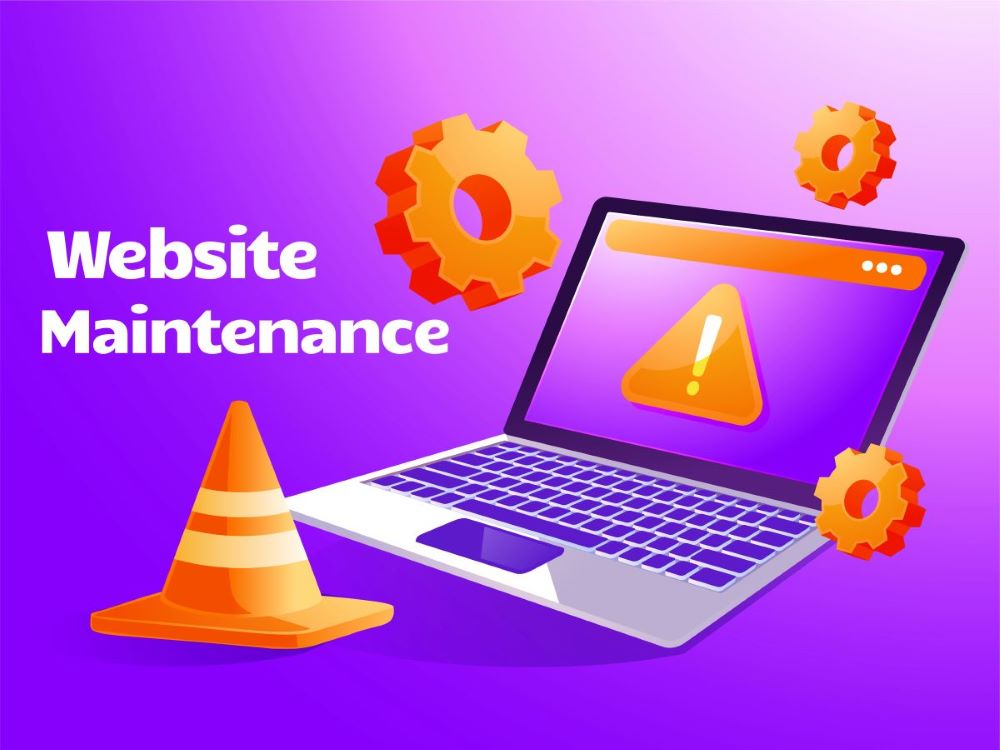When it comes to running a successful website, maintenance is just as important as design and development. Whether you’re managing a small personal blog or a growing business website, keeping your site up to date is essential for improving performance, ensuring security, and boosting your search engine rankings. But how long does website maintenance take, and why is it so crucial?
In this guide, we’ll cover the various factors that influence website maintenance time and how regular website maintenance can keep your site running smoothly. We’ll also provide actionable tips for streamlining the maintenance process and explain how SEO Strategies Pro can help you manage it efficiently.
What Is Website Maintenance?
Website maintenance refers to the routine tasks required to keep your website functioning correctly, up to date, and secure.
This can range from minor updates like fixing broken links and refreshing content to more complex tasks like improving website speed and conducting security audits.
Without regular website maintenance, your site may fall behind in performance, security protocols may become outdated, and search engines may penalize you with lower rankings.
Maintenance is not a one-time process but rather an ongoing commitment to ensure that your site remains functional, user-friendly, and optimized for search engines. For website owners, small businesses, and digital marketers, understanding the importance of maintenance is critical to the overall health of your site.
Why You Should Give Priority to Website Maintenance
Website maintenance is more than just a technical necessity—it’s a crucial part of running a successful online business. Here are a few reasons why you should prioritize website maintenance:
- Security Protection: Regular updates, security audits, and patching vulnerabilities help protect your site from potential cyber-attacks and hacking attempts. Without up-to-date security protocols, your website is an easy target for attackers.
- Improved Search Engine Rankings: Well-maintained websites tend to perform better in search results. Fixing broken links, optimizing for website speed, and ensuring up-to-date content all contribute to better search engine rankings.
- User Experience: Websites that are regularly updated and maintained provide a better user experience. Faster loading speeds, pages that display correctly, and working links keep visitors engaged and reduce bounce rates.
- Increased Site Performance: Regular maintenance helps improve overall site performance. Routine checks on server health, code integrity, and speed optimization ensure that your website runs efficiently.
- Prevent Data Loss: Performing regular backups and data restoration processes are essential for preventing data loss, whether due to technical issues or external attacks.
In short, website maintenance is a key factor in ensuring your site remains secure, functional, and well-optimized for search engines and users.
What Tasks Are Involved for Efficient Website Maintenance?
Maintaining a website involves a variety of tasks to ensure it remains up-to-date and free of issues that could affect its performance, security, or user experience. Here’s a breakdown of the key tasks involved in website maintenance:
Updating Software and Plugins
Websites often run on software such as WordPress or other content management systems (CMS). Regular updates to the core software, as well as installed plugins or themes, are essential to prevent vulnerabilities.
Fixing Broken Links
Over time, some links on your website may no longer work, leading to a poor user experience and hurting your search engine rankings. Regularly checking and fixing broken links is an important maintenance task.
Content Updates
Keeping your content relevant and up to date is critical for SEO. Adding fresh content, updating outdated information, and removing unnecessary pages all help improve your site’s visibility on Google.
Optimizing Website Speed
Slow websites often lead to higher bounce rates and decreased search engine rankings. Speed optimization tasks, such as compressing images, optimizing code, and reducing server response time, are crucial for maintaining a fast website.
Backing Up Data
Regular backups of your website’s data ensure that you won’t lose valuable content, settings, or user data in the event of a system crash or cyber attack.
Ensuring Mobile Compatibility
With the majority of web traffic now coming from mobile devices, it’s crucial to ensure that your website displays correctly across all devices. Regular checks for mobile compatibility will help maintain a smooth user experience.
SEO Audits and Adjustments
Regularly reviewing your website’s SEO health ensures that your site remains optimized for search engines. This includes checking for missing meta tags, optimizing content, and monitoring search engine rankings.
Security Checks
Running security scans to check for malware, vulnerabilities, and other security risks is essential to maintaining a secure website. This also includes updating your SSL certificate and ensuring strong security protocols are in place.
Bug Fixes and Performance Tweaks
Over time, websites may develop bugs or other performance issues. Regular bug fixes and performance tweaks help maintain a smooth and error-free experience for users.
How Long Does Website Maintenance Take?
So, how long does website maintenance take? The time required depends on the scope of the tasks involved and the size of your website. On average, website maintenance can take anywhere from 1-2 hours per week for smaller sites to several hours per week for more complex websites.
Factors Affecting Maintenance Time:
- Frequency of updates: Sites with frequent content updates may require daily or weekly maintenance.
- Complexity of tasks: Simple tasks like content updates take less time than fixing major technical issues or conducting full security audits.
- Number of pages: Larger websites with multiple pages and advanced functionalities take longer to maintain.
- Technical requirements: Custom-built websites or those with complex integrations may need more specialized attention, increasing maintenance time.
Regular maintenance tasks like updating plugins, checking for broken links, and performing backups can often be done in a few hours per month. However, if your website experiences unexpected issues like downtime or cyber attacks, additional time may be required to resolve these problems.
Optimizing Your Website Maintenance Process
Efficiency is key when it comes to website maintenance. Here are a few tips to help you optimize the process:
- Create a maintenance schedule: Establish a clear schedule for when tasks should be completed. This can include monthly backups, quarterly security audits, and weekly performance checks.
- Use automated tools: There are several tools available to automate tasks like checking for broken links, monitoring uptime, and creating backups. Automation can significantly reduce the amount of time spent on manual tasks.
- Hire a website maintenance company: For businesses with more complex websites, it might make sense to outsource to a website maintenance company. These companies offer website maintenance services tailored to your needs, ensuring that all tasks are handled efficiently and professionally.
- Track performance metrics: Regularly review metrics such as website speed, traffic, and bounce rates to identify areas that may need improvement.
How Often Do I Need to Perform Website Maintenance?
While some tasks, like content updates, need to be performed regularly, others, like security audits, may only need to be done every few months. Here’s a suggested maintenance timeline:
- Daily: Check site performance and address any urgent issues.
- Weekly: Update content, software, and plugins. Monitor site for broken links or slow loading times.
- Monthly: Perform full backups, review security protocols, and optimize website speed.
- Quarterly: Conduct a thorough security audit, evaluate SEO performance, and update any outdated features.
By sticking to this schedule, you can ensure your website remains secure, fast, and user-friendly.
Why Regular Website Maintenance Is Important
Failing to perform regular website maintenance can lead to several negative consequences, such as:
- Loss of traffic: A slow, outdated website will drive visitors away, resulting in lost revenue or engagement.
- Security vulnerabilities: Without regular updates, your site becomes an easy target for hackers.
- Decreased SEO performance: Search engines like Google favor websites that are frequently updated with fresh content and perform well in terms of speed and security.
Regular maintenance is crucial not just for site performance but also for ensuring higher search engine rankings and a positive user experience.
What to Consider When Choosing a Website Maintenance Service
Choosing the right website maintenance service can make a big difference in how efficiently your website runs. Here are some factors to consider when selecting a website maintenance company:
- Experience: Look for a company with experience in your specific industry or website type.
- Services offered: Ensure the company provides a comprehensive maintenance package that covers security updates, performance optimization, and content management.
- Customer support: Make sure the company offers reliable support for urgent issues or downtime.
- Pricing: Compare maintenance package options to find one that fits your budget without compromising quality.
How SEO Strategies Pro Can Help You
Maintaining your website can be a time-consuming and complex task, but you don’t have to do it alone. SEO Strategies Pro offers professional website maintenance services designed to keep your site running smoothly while you focus on growing your business. Our expert team can handle everything from regular content updates to security audits, ensuring that your site remains optimized for search engines and user experience.
With a tailored website maintenance package, SEO Strategies Pro provides the following services:
- Regular website security updates and audits
- Fixing broken links and bug fixes
- Ensuring your site displays correctly across all devices and popular browsers
- Enhancing site performance, including loading speed
- Keeping your site up-to-date with fresh, relevant content
By choosing SEO Strategies Pro, you can trust that your website will be consistently maintained, helping you achieve higher search engine rankings, improved user experience, and increased traffic.
Keep Your Website Running Smoothly with SEO Strategies Pro
By staying on top of your website maintenance, you can avoid potential security threats, improve your site’s performance, and maintain a competitive edge in the online space. Investing time in maintaining your website will result in better user experiences, higher rankings on search engines, and, ultimately, more traffic and conversions. Don’t let website maintenance slow you down. At SEO Strategies Pro, we can help you manage all aspects of website maintenance, so you can focus on growing your business. Contact us today to learn more about our website maintenance packages and how we can keep your site secure, fast, and optimized for SEO.


